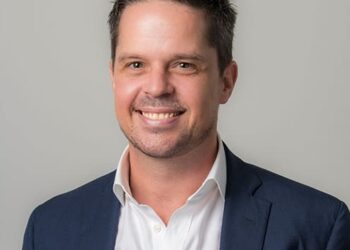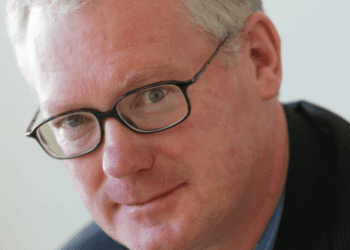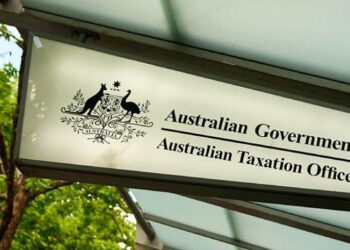In an address to the National Press Club on Wednesday, Chalmers said the government has a “mandate for that change” and is seeking to build on the progress made in the past three years through further tax reform.
The Treasurer used the address to introduce the government’s plans to redesign the Australian tax system over the next term, with the formation of a special roundtable in the hope of reducing the country’s deficit and improving productivity.
“We’re looking for, not opportunities to go back on the things that we have got a mandate for, we’re looking for new ideas,” he said.
“We don’t see that as an opportunity to walk back on some of the things that we’re already committed to, in this case, some years ago. We see it as an opportunity to work out what the next steps might be.”
He said the decisions the government makes in the 2020s will determine the “living standards and intergenerational justice” in the following decades.
“I think there is a broad recognition of that. That doesn’t always exist, but I think right now I feel encouraged and confident that there is an element of that in the broader community.”
With tax reform comes “trade-offs” that can be difficult but which the government has to consider, otherwise the country might “spin its wheels”.
“If you think about tax, about broadening the base and lowering the rate and some of these sorts of areas, which is an important element of tax reform theory, there are always difficult trade‑offs associated with that,” Chalmers said.
“So, what we’re trying to do with this roundtable, but more broadly as well, even absent the roundtable, is to be upfront with all of you and the country beyond, about the trade‑offs. To recognise that the easiest thing in the world is for people to come to us and say, we want you to dramatically cut the taxes in our part of the economy and spend dramatically more on our industry without recognising that there are necessary trade‑offs associated with that.”
He added that it would be unusual if the conversation on national reform did not include discussions about tax.
“That would be strange, and it wouldn’t be especially helpful to us. I anticipate, I welcome, the fact that people will come to the roundtable, outside the roundtable, people will pitch up ideas about tax.”
Productivity will suffer with current thinking
James Paterson, shadow finance minister, said the Treasurer’s comments that the tax on unrealised capital gains is off the table is not welcome news for innovation in Australia, despite the government’s rhetoric on improving productivity.
“Whether this was the policy intent or not when superannuation was created, superannuation – particularly from self-managed super funds – has become one of the ways in which people invest in early stage companies and effectively provide venture capital finance in this country,” Paterson said on Sky News yesterday.
“Now if you start to tax unrealised gains then no one in their right mind would use this vehicle to invest in early stage companies. Because their valuations can wildly fluctuate and you could have an up round which significantly increases the value on paper of those shares without actually realising any of the benefit of that gain and you’d be up for a massive tax bill under the Treasurer’s tax on unrealised capital gains.
“That’s a huge mistake. We have decade-low business investment. The last thing we need to do is to make it any harder than it already is to invest in early-stage companies and start-up companies. We need a dynamic, entrepreneurial economy and the Treasurer’s plans are going to put a wet blanket on that.”
Chris Freeland, chief executive of CPA Australia, cautioned that the government’s requirement that any reforms be budget neutral or budget positive risks acting as a handbrake on genuine discussions.
“For tax reform discussions to be effective and to ensure they serve the national interest, the condition of revenue neutrality must be removed,” Freeland said.
“Requiring every tax reform to be budget neutral from day one will stifle ambition. Some of the most effective reforms – such as rebalancing the tax mix or improving system design – may cost money upfront but deliver stronger growth, higher productivity and more sustainable revenue over time.
“Australians deserve a mature and honest conversation about the trade-offs required to fund the services and resources they expect.”
Tax reform design currently flawed
Meanwhile, The Tax Institute said there is substantial support from its members and the wider tax community for changes that make the Australian tax system more equitable, including superannuation reform.
Julie Abdalla, head of tax and legal for the institute, said by design, good tax policy ensures that each person pays an appropriate share, based on their circumstances, to fuel the society in which we wish to live.
“But this outcome cannot and should not be achieved at the expense of sound law design principles,” Abdalla said.
“Legislative change should be underpinned by some key objectives, including that it should be readily able to be interpreted and understood, in order to make compliance with tax obligations simple, have a low level of administrative complexity and not create a disproportionate administrative burden; and be fair and equitable for all Australians, and sustainable into the future.”
She said the proposed Div 296 tax fails on all counts and there are several better, fairer policy options to tax higher superannuation balances, and to create a more equitable tax environment.
“It’s unconscionable that Treasury is pushing this policy through with blatant disregard for the legal and equitable concerns raised by stakeholders. And it is particularly dishonest and disappointing to hear the Treasurer publicly state that no better solutions have been proffered, when many highly intelligent people and superannuation experts have presented various reasonable and workable alternatives.”
She continued that if a person is forced to sell assets to pay a Div 296 tax bill, substantial costs such as CGT and transfer duty are likely to be incurred.
“Not only would they be paying tax on unrealised gains, but on actual capital gains as well. While this stands to raise considerable revenue for Treasury, it is also likely to have an outsized impact on Australians’ investment and savings plans.
This is the opposite of good tax policy design,” she said.
“Although the fundamental policy design of Div 296 is flawed and should not be implemented in its current form, the need for genuine tax reform that makes our tax system more equitable remains.
“The Tax Institute is not opposed to a reduction in the concessional treatment of superannuation. However, the mechanism of taxing unrealised gains sets a dangerous precedent and alternatives should be given due consideration.”



Haven’t any of you been watching the popular backlash in the USA of wasting taxpayer dollars?
Superannuation tax concessions are given away at a cost to other taxpayers. These concessions reduce the revenue. Go and read the Budget papers for any year if you don’t get that. The treasury is not a bottomless pit, and there are only 25million of us to contribute to it.
A couple can retire with $2M each, so $4M invested, and the investment earnings on pension accounts are completely tax free! You can’t get a deal like that in any other country in the world.
But it’s not good enough for you?
The message is clear. If you personally have more than $3M in super, it’s time to get your grubby snouts out of the taxpayer funded trough.
Bruno, do you remember why the superannuation system was created in the first place? It was to reduce the reliance on government provided pensions. The tax concessions create the incentive for individuals to save for their own retirement whilst also compensating for the loss of disposable income due to compulsory superannuation contributions.
To impose a personal tax on the individual because of the success of their superannuation fund that they are unable to access prior to meeting a condition of release is morally corrupt. If the government wants superannuants to get their grubby snouts of the taxpayer funded trough, then why not allow unrestricted withdrawals for those who have in excess of $3m regardless of their preservation status? Why force these individuals in employment situations to contribute 12% of their income to the fund and then hit them with Division 293 tax?
The fact is, the government is spending the tax collected in an unsustainable way and before they put their hand out again and raid the retirement savings of the populous they should look at ways in which existing spending could be reduced, improved, or better yet, removed.
It is not the taxing of the amount over $3m at an extra 15% that is an issue. It is the taxing of Unrealised Capital Gains that is the issue and the compliance problems that go with it as well as the ethics of it.
The fact that earnings in pension accounts are tax free is just plain dumb as this tax should be used to fund aged care properly as, after all, it is people who are over 65 who will mostly be using aged care and they should be paying for it instead of their children and grandchildren.
That’s a bit unfair to those of us who have paid far more tax than most and by sacrifice and hard work and some good fortune, have managed to acquire more than what you describe above.
From our perspective, we want the government to stop taking more and more from us (as they do outside of superannuation for us) and keep their grubby hands away from our life’s savings (place there so that we could not even touch it).
The taypayer funded trough that you talk about is largely already funded by these same people.
By and large most of us (I am assuming) already pay the bulk of that tax, so it makes sense that we get most back in tax concessions.
The pension to a couple is worth almost the same as a $1m lottery win paid out over their lifetime. We will not get that “gift” or win’, and it is actually funded by us.
Chalmers is a stubborn, ignorant, liar. Totally unfit for public office. Where do these socialist rats come from and how do they get themselves elected in a so-called liberal democracy. Mind blowing, and an indictment on the intelligence, or more likely total disinterest of most of the electorate. They will pay a steep price for their lack of due care with their vote. Because if you have more than average assets, unless you are a member of the protected political elite, you and your children will pay a steep price for what this unreasonable zealot will do to you over the next three years. You have been warned.
Unfortunately it is right out of the Fabianist playbook. The members become politians and judges with their cushy entitlements, unionists to ensure the redistribution of wealth and to choke capitalism, and the educators (including retired politians who end up as professors) are used to brainwash the young.to the socialist agendas of the Fabian society. After 100 years, the entrepreneurial new-found wealthy have become the New World slaves to feed the socialist agendas for the majority that don’t ever have to work if they choose not to, even if they are able-bodied and able-minded.
They do not want aspirational workers except to a point, in order to be able to tax them to feed the socialist machine.
Aspiration is no more in this country. It will not hold you in good stead unless you are part of the Fabian machine.
What is ‘intergenerational justice’?
This isn’t a socialist country, as much as we are regenerating the tall poppy syndrome.
A tip for treasury, you don’t need to collect more money – if you stop wasting what you already get!!!
Chalmers is often quoted as denigrating those against the Div 296 tax as being too wealthy and unappreciative of the super tax benefits they are already receiving but I have encountered very few who aren’t prepared to accept the tax with equanimity – it’s the taxing of unrealised gains which is the problem.
Well said David.
If they remove the unrealised capital gains from the equation a lot of the noise regarding Div 296 will disappear.
This is why Chalmers is a spin doctor – so many lies and stretching of the truth.
I would like to know since when is a 34.5% win of first preferences identified as a “mandate”?
Every time he speaks, he vomits out more lies. This man can never be trusted.